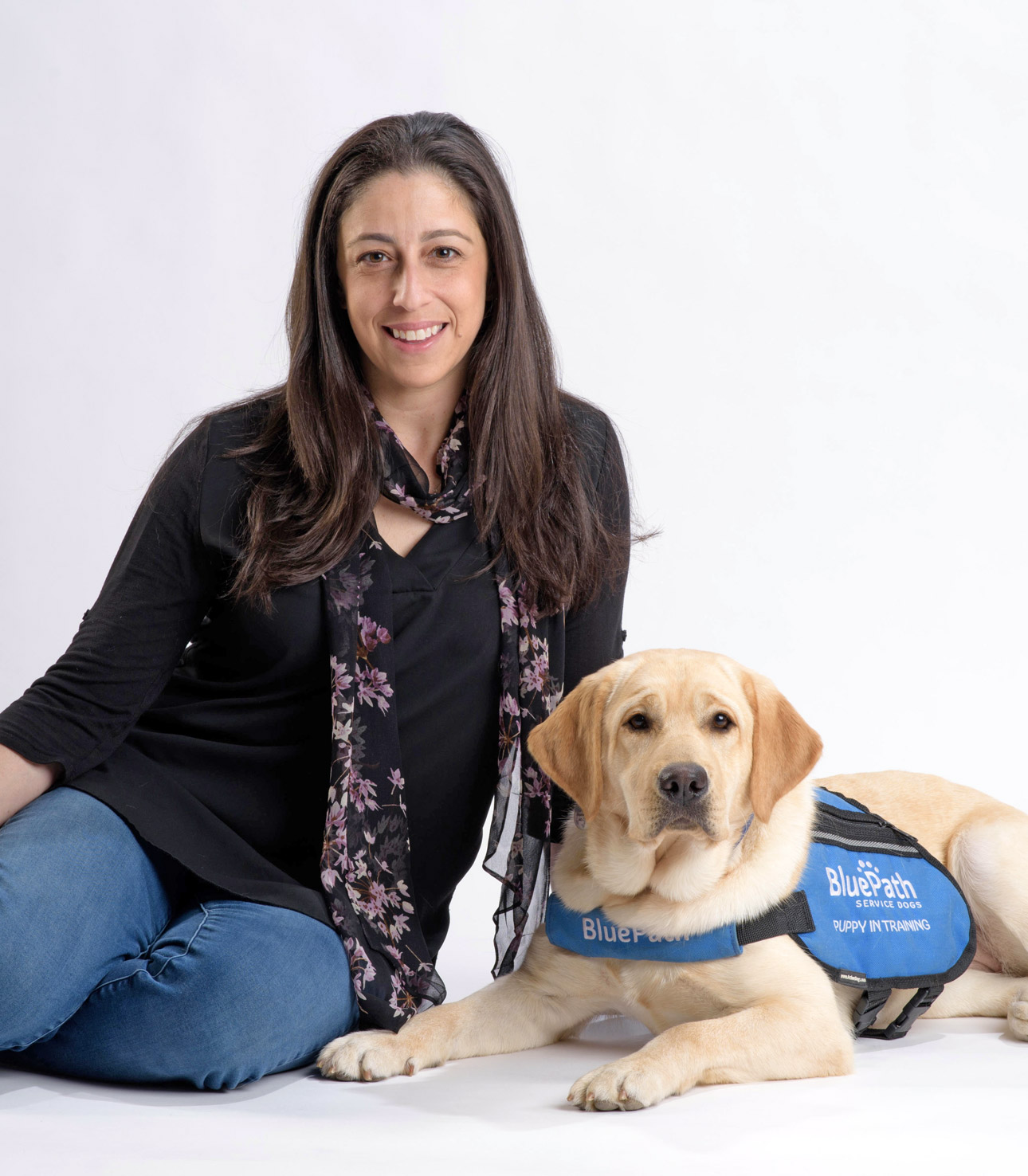
BluePath Service Dogs was established in December 2016 to provide service dog assistance for children with autism.
Although the use of service dogs for adults with post-traumatic stress disorder and disabilities is well-known, their benefits for children on the autism spectrum is equally impressive.

“About half of children diagnosed with autism are prone to wandering or development behaviors where they don’t have a true understanding of danger and may run into a crowded street or parking lot, or towards water without knowing how to swim,” said Michelle Brier, vice president of marketing and development at the Hopewell Junction-headquartered organization.
“Our dogs wear a vest and the child is tethered to the dog with a specially designed belt. If the child goes to bolt, the dog anchors and immediately stops that child from getting away.”
Brier said the dogs “also offer incredible companionship and help to reduce anxiety, particularly in transitions. Over this past year, more than ever with so many routines interrupted and regular life somewhat turned upside down, the support and stability of having our dogs in their lives has made it possible for children and families to just be able to get through day to day.”
BluePath Service Dogs works with Labrador Retrievers, Golden Retrievers and Labrador-Golden Retriever crossbreeds. The dogs begin their training when they are puppies by having early socialization with people in order to get comfortable with their surroundings. Training lasts until the dogs are two years old, at which time they begin to get placed with families.
Brier acknowledged that not every child is the right candidate to have a service dog.
“You may have heard the statement that if you’ve met one person with autism, you’ve met one person with autism,” she said. “Because there’s such a large spectrum, some children really love the dogs, some children have a working relationship with the dogs and some kids don’t want to be anywhere near dogs. But for children who enjoy being around the dogs, it’s a relationship where communication doesn’t need to happen verbally, and where these incredible bonds can form that are just unbelievably powerful.”
Households that are interested in obtaining a service dog from the organization need to be within a two-hour radius of Dutchess County and participate in a Zoom interview followed by a series of home-based interviews. It can take between six to 12 months before a dog is placed with a child.
“Our dogs are provided to family completely free of charge because we don’t want financial capacity to be a barrier to our service,” Brier stated. “That said, the family does need to be able to provide the ongoing care for the dog following placements, so they would cover food and veterinary care.”
The organization hosted its fifth annual walkathon fundraiser on May 15. And for the second consecutive year, it was virtual.
“We looked at all of the ways to try to have a live event safely,” said Brier.
“We considered all of the social distancing practices, but that would take away some of the really special parts of being together and being able to see dogs that you love.”
So, she encouraged people to walk with those who they’re safe with and to take a lot of photos and videos that would be shared on social media.
As for the post-walkathon period, Brier said the organization did not have any special events scheduled for the remainder of the year, but she noted that BluePath Service Dogs “always have volunteer opportunities and puppy raising or fostering or dogs and training. And we certainly interact with those volunteers to support them in the process.”